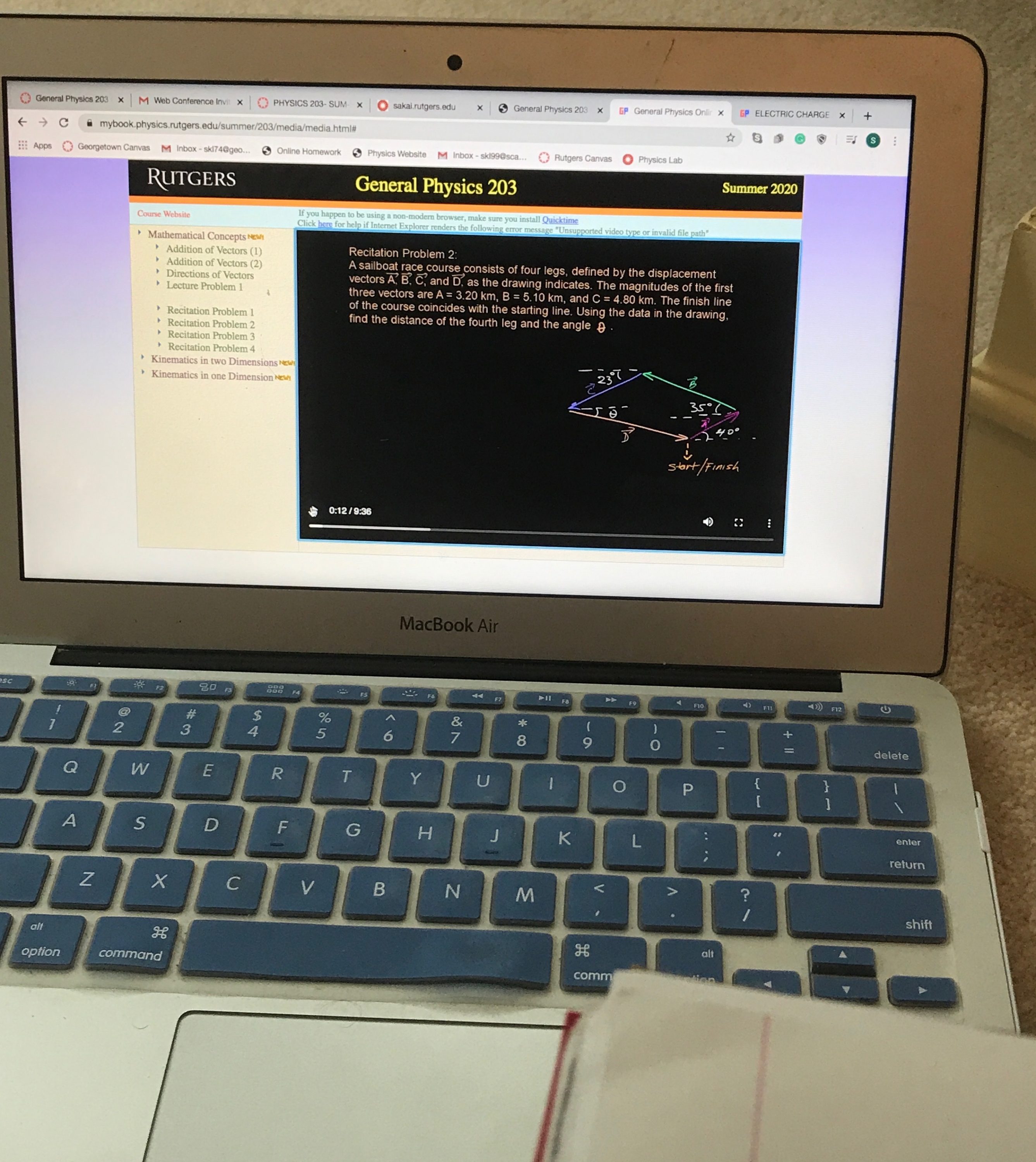A Georgetown student’s summer is typically just as busy as their school year, with students ambitiously pursuing internships, research fellowships, and jobs across the globe.
This summer, however, nearly 2,000 Georgetown students will return to the virtual classroom. Rates of registration for Georgetown’s 2020 summer session spiked 69 percent in comparison to 2019 according to Dennesha Diaz, Assistant Dean for the university’s summer programs. The increase in registration is likely due to shelter-in-place guidelines that largely restrict students to working from home. While 1,800 students are taking courses taught by Georgetown professors, others are transferring credits from state or local universities to avoid Georgetown’s high costs of $1,630 per credit for undergraduates and $2,129 for graduate students.
The Georgetown summer session continued to see an increase in class registration through late April and May, as programs and internships were canceled or moved to a virtual setting.
“I was not originally planning on taking summer classes, but my summer plans changed and I had more time on my hands so I thought might as well,” Jane Doherty (COL ’23) said.
Doherty, who is now studying Foundations in Biology and Africa II through the Georgetown summer session, was originally considering volunteering in Argentina over the summer.
“I was thinking about working with chimpanzees. There is this really interesting program in Argentina, but that is not a possibility anymore,” Doherty added.
The pass/fail option implemented in the spring will also apply to all summer classes, allowing students to complete courses without their final grades factoring into their GPA. Doherty was honest in her desire to utilize the pass/fail option for her summer classes.
“I am taking the history one to take advantage of the pass/fail option, not going to lie,” Doherty said. “Foundations for Biology did not fit into my semester last year, but I really wanted to take it, so I thought, perfect, I can take it over the summer and still fit all my other classes in.”
Some students are avoiding the costs of Georgetown’s summer sessions by taking core classes that are easily transferable at local universities with in-state tuition or scholarships.
Adam Pack (SFS ’23) is taking International Relations and Macroeconomics through Georgetown’s summer program, but Calculus One at his state school, West Virginia University.
“The reason I chose to take calculus at my state university is because of the cost,” Pack said. “When I was comparing the cost, it was over $1200 cheaper per credit than at Georgetown.”
While Pack is transferring credit from another institution, Georgetown does not allow all external courses to apply to a student’s degree. Georgetown’s Hoya Summer Sessions program encourages students to consult their dean prior to registering for credits at another institution to determine if credits are transferable. For students who can afford it, there can also be an advantage to taking classes in certain topics through Georgetown.
“For macroeconomics, my dean told me I should take econ classes at Georgetown because they are really hard to transfer,” Pack said. “And I wanted to take International Relations at Georgetown because of the SFS.”
The increase in registration for Georgetown’s summer classes is also due to scheduling demands as summer sessions offer students an opportunity to open space in their semester schedules as core classes are checked off. Students who were planning on studying abroad in the 2020 fall or 2021 spring semesters may need to take credits over the summer to adapt to changing schedules as a result of COVID-19.
“This spring, we worked with the advising deans of each school to identify high need courses that were not already on our schedule for summer 2020 and added those immediately,” Diaz, wrote in a statement to the Voice.
“We are hearing from the undergraduate advising deans that students whose spring and summer study abroad programs have been disrupted may need to take summer courses to stay on track,” Diaz added.
In addition to returning Georgetown students, 700 high schoolers have registered for virtual summer courses through the university. Usually, over 2,300 high schoolers come to the Hilltop each summer to get a sense of what Georgetown classes are like and delve into specific academic interests. This year, however, all courses for all students are online. While virtual programs do not convey the same in-person experience, the university is working to make the classes as valuable as they can for registered high schoolers.
“For most summer high school students, they are looking for an authentic college life experience, Diaz added. “We have plans to offer fun and creative programming to build a sense of community this summer, including pairing high school students with virtual roommates and hosting evening and weekend activities,” Diaz added.
For Georgetown students registered for summer courses, the summer session program is also offering free career development opportunities to help students connect with employers even during the COVID-19 pandemic.
“The fact that many GU undergrads may have had their summer plans disrupted, we’re offering a group of exciting new and expanded opportunities for students to advance their career exploration,” Diaz added.
The deadline to register for second session courses beginning July 6 is June 28.





[…] Source link […]